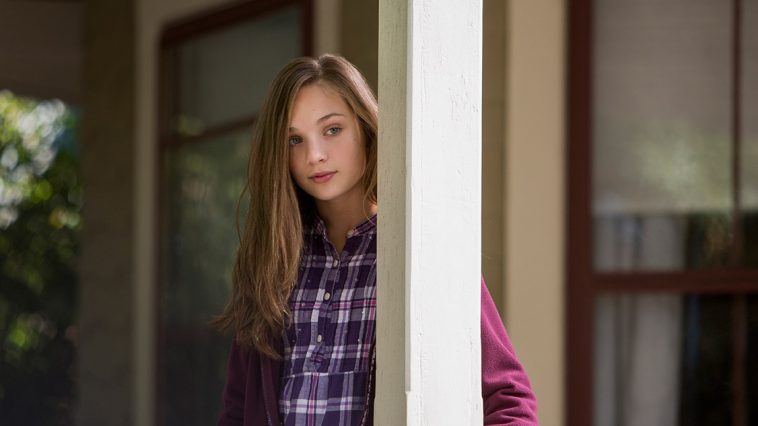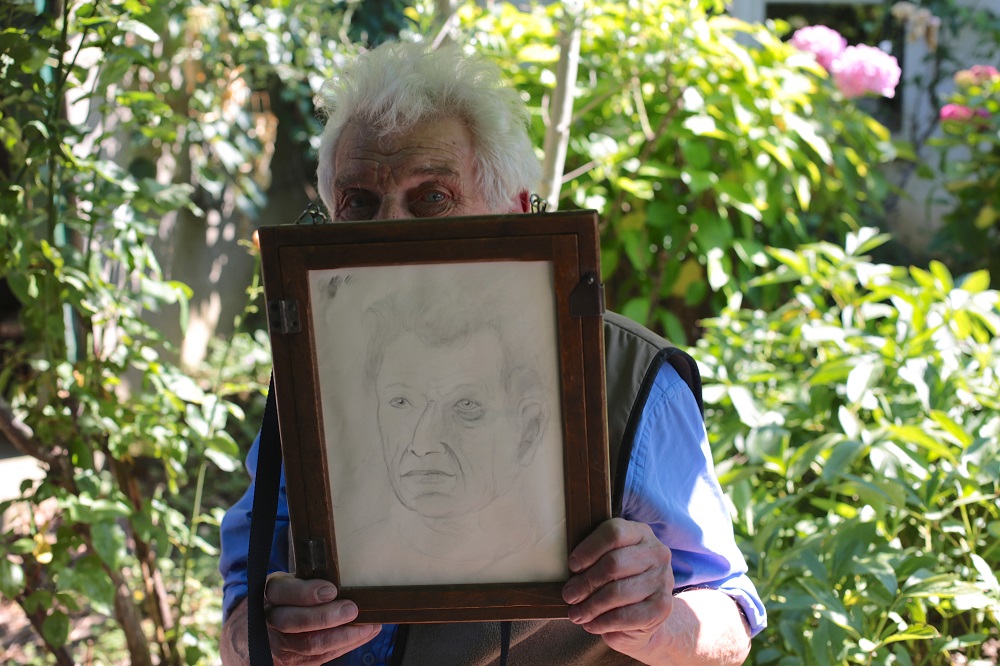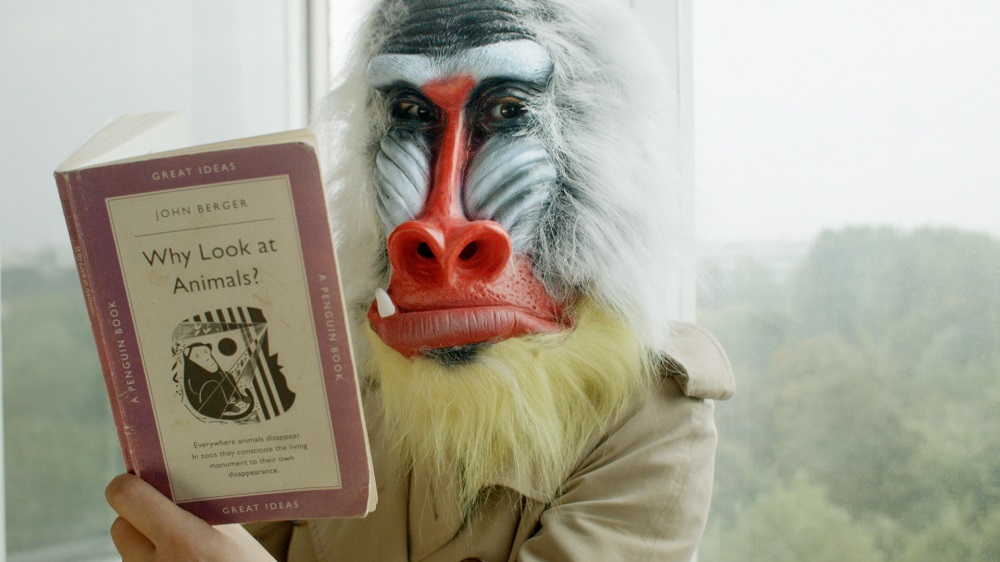If you're going to cobble together an entirely pro forma film, it's not a bad idea to give Shirley MacLaine pride of place. At 83, this redoubtable pro is no more capable of falsehood now than she ever was. It means that, although individual moments of The Last Word may find you rolling your eyes, its central performance rivets attention from first to last.

First introduced into the burgeoning “Marvel Cinematic Universe” in last year’s Captain America: Civil War, Tom Holland’s incarnation of Spider-Man is another triumph for this exuberant franchise (even if some might feel a pang for the fine and still-recent pairing of Andrew Garfield and Emma Stone under director Marc Webb's helmsmanship).

Baby drives like a deranged bullet. Edgar Wright’s “diegetic action-musical” choreographs the bank-heist getaways of angel-faced Baby (Ansel Elgort) as physically exhilarating pure cinema, a rush that’s rare.

Julian Assange’s white hair marks his public persona. To some he’s an unmistakably branded outsider, or a lone white wolf hunting global injustice. Hollywood would cast him as the coolly enigmatic superhero who’s revealed as the supervillain in the last reel.

Is meat murder? Will people eat anything if it’s cheap? Is the taste of bacon really what stops us half the western world turning vegetarian? Okja is a commercial stretch, a partly subtitled children’s fable from South Korea which unstintingly confronts all of these deep moral questions. But it does so in the most – if you will – palatable manner.

Isabelle Huppert isn’t just here for the nasty things in life. Her rape non-victim in Elle was one of the most iconoclastic performances even she’s given, enigmatic yet emotionally rich, rooted and moving. She won’t get nearly as much attention for her role here as Liliane, a singer who came second to Abba at Eurovision, who’s lured out of an anonymous retirement by a besotted, 21-year-old boxer who becomes her lover and manager.

It’s been quite a while since I’ve seen a movie as staggeringly awful as The Book of Henry. If it was just a touch more shrill it could have qualified as a so-bad-it’s-good camp classic, but unfortunately it teeters this side of tasteful in order to keep its 12 rating. How any studio executive ever read Gregg Hurwitz’s script and thought this was a viable scenario is truly baffling. What terrible atonement for sins in a past life led Naomi Watts to take the lead is another mystery, as is the question of how director Colin Trevorrow (Jurassic World) is going to live this debacle down and go on to helm the next Star Wars.
Jaeden Lieberher plays Henry, an 11-year-old genius who ramps up the value of his waitress mother’s stock portfolio from a phone box. He goes to a regular school despite his stellar IQ because, as he says, "It’s better for my psycho social development for me to interact with my peer group in a normal school environment." He has no father but does share his bedroom with a cute little brother (Jacob Tremblay from Room – wasted here). Henry’s not just brilliant at finances and uttering homilies in class, he’s good with his hands too – he’s singlehandedly built a huge Heath Robinson-esque den in the wood near their home. His ditzy mother Susan (Watts), is happy to have her finances run by her son as she’s addicted to videogames. She’s not pure slacker mom though - she dreams of writing a children’s book between shifts at the local diner and is really good at hugging. Susan's workmate/bestie is played by Sara Silverman, her bosom tormented by a pushup bra and smothered in tattoos. She has a tendency to flirt with Henry. Again, one wonders what induced an intelligent actor to take this part? The movie then mutates from quirky family comedy to psychodrama, Suffering silently in the house next door is Henry’s classmate Christina, a ‘tween beauty played by Maddie Ziegler (pictured above) who is most famous from regular appearances in the TV hit Dance Moms and a very dodgy Sia video with Shia LaBoeuf). Only Henry knows Christina's dark secret; she is being abused by her wicked stepfather (Dean Norris from Breaking Bad) who just happens to be the local chief of police so no one believes Henry when he sounds the alert…
Susan's workmate/bestie is played by Sara Silverman, her bosom tormented by a pushup bra and smothered in tattoos. She has a tendency to flirt with Henry. Again, one wonders what induced an intelligent actor to take this part? The movie then mutates from quirky family comedy to psychodrama, Suffering silently in the house next door is Henry’s classmate Christina, a ‘tween beauty played by Maddie Ziegler (pictured above) who is most famous from regular appearances in the TV hit Dance Moms and a very dodgy Sia video with Shia LaBoeuf). Only Henry knows Christina's dark secret; she is being abused by her wicked stepfather (Dean Norris from Breaking Bad) who just happens to be the local chief of police so no one believes Henry when he sounds the alert…
The Book of Henry then switches genres again to become a disease-of-the-week weepie; it turns out the financial whizzkid is also an expert neurologist who knows which brain tumours are untreatable. At this point my regular 13-year-old movie companion muttered: "It’s now gotten really stupid that he is so clever". Never mind grief-stricken mom, there’s a toweringly hunky doctor (Lee Pace) waiting to cheer her up and Tremblay finally gets a chance to be cute in the school talent show.
The movie makes its final screeching handbrake turn, swerving from weepie to thriller as Susan turns vigilante avenger on behalf of Christina. Luckily, Henry has left detailed instructions (the book of the title) on how to talk tough and illegally buy a gun. He's also available on tape to talk his mom through target practice. Trevorrow cross-cuts between Susan and evil stepdad stalking each other through scary dark woods and the cloying talent show. In a final nonsensical twist, Christina's interpretative dance solo makes the scales fall from the headteacher’s eyes about the abuse allegations - she doesn't just win the talent contest, she gets a new family. By the end of the film, nearly everyone lives happily ever after – except us. The 13-year-old and I would quite like a refund on the 105 minutes we wasted on The Book of Henry. Please don’t make the same mistake.
Overleaf: watch the official trailer for The Book of Henry

Do the makers of the essentially unnecessary Hampstead have a secret vendetta against north London and its citizenry?

“Men act and women appear. Men look at women. Women watch themselves being looked at. This determines not only most relations between men and women but also the relation of women to themselves.” I’ve quoted these words by John Berger many, many times. They are in my bloodstream, as it were, since they provided me with an explanation for my experience as a young woman in the world.
The 1972 television series and accompanying book Ways of Seeing from which they came also changed the way people looked at and thought about art. The clarity and conviction of Berger’s observations about how we see and read images cut through the obfuscating waffle which, until then, had passed for art criticism. He made it clear that images are, first and foremost, a means of communication and, as such, they have political and social content as well as aesthetic merit.
Sadly Berger died last January aged 91. The Seasons in Quincy is an affectionate portrait of the man, his ideas and his life in Quincy, the village in the French Haute-Savoie to which he moved in the mid 1970s with his third wife, Beverly. Made by different directors while Berger was still alive, the four films look at various aspects of his life. For anyone wanting a conventional documentary, they will be a frustrating experience; but then it would be hard to do justice to a man whose prolific writings encompass a wide range of topics.  He described himself as a revolutionary story-teller; when awarded the Booker Prize in 1972 he donated half the prize money to the Black Panther Party in Britain. As well as books on Picasso, Spinoza, documentary photography, the Russian emigré Ernst Neizvestny and artists working in the Soviet Union, Berger also wrote novels, short stories, poems and social commentary. His book A Seventh Man: Migrant Workers in Europe (1975), for instance, was informed by his experience of living and working among peasants in the Haute-Savoie. And he broached the subject again in the 1980s trilogy Into Their Labours, this time in novel form.
He described himself as a revolutionary story-teller; when awarded the Booker Prize in 1972 he donated half the prize money to the Black Panther Party in Britain. As well as books on Picasso, Spinoza, documentary photography, the Russian emigré Ernst Neizvestny and artists working in the Soviet Union, Berger also wrote novels, short stories, poems and social commentary. His book A Seventh Man: Migrant Workers in Europe (1975), for instance, was informed by his experience of living and working among peasants in the Haute-Savoie. And he broached the subject again in the 1980s trilogy Into Their Labours, this time in novel form.
Tilda Swinton describes her opening film as “A photograph of a meeting between friends”. She and Berger were both born on 5 November, 34 years apart; this created, says Swinton, “an indissoluble bond of kinship” between them. She visits Berger the week before Christmas for “a catch-up”.
Watching her slice apples for a crumble triggers childhood memories in him of his father, who served on the Western Front in World War One and was awarded the Military Cross, but never spoke of his wartime experiences. It's another thing the pair have in common; despite losing a leg in World War Two, Swinton’s father never mentioned his disability. The decision to keep silent and not hand on experiences from which one’s children might learn prompted Berger to write, “History cannot have its tongue cut out.”
Swinton ends the film with her recipe for apple crumble, which includes the lines: “an apron of apples preferably from one’s own tree, a horse’s cheek of oats, at least one sound finger and thumb for crumbling, a brave amount of ground ginger, an élan of lemon juice, appetite, good company”. Depending on one’s state of mind, the film is either disarmingly intimate or annoyingly self-regarding.
“We came to Quincy to talk to John Berger about uprisings ... the Prague Spring, the Arab Spring and the perpetual false spring of capital,” says Christopher Roth at the beginning of his film Spring. On arrival, though, he discovered that “a private winter had established itself in the household with the death of Beverly”. Switching to plan B, he made a film about animals and our interactions with them. Berger’s presence is established through excerpts from Once Upon a Time, a film made by Mike Dibb in 1983 and extracts from books like Why Look at Animals? and Pig Earth, in which Berger discusses our often conflicted relationship with animals. Footage of zoo and farm animals and an interview with a peasant farmer in Haute Savoie links Berger’s ideas with the present. It is a good film about an important subject, but after the opening statement, it inevitably feels like a stand-in for the main event.
Berger’s presence is established through excerpts from Once Upon a Time, a film made by Mike Dibb in 1983 and extracts from books like Why Look at Animals? and Pig Earth, in which Berger discusses our often conflicted relationship with animals. Footage of zoo and farm animals and an interview with a peasant farmer in Haute Savoie links Berger’s ideas with the present. It is a good film about an important subject, but after the opening statement, it inevitably feels like a stand-in for the main event.
Of the four films, A Song for Politics by Bartek Dziadosz and Colin MacCabe is the nearest thing to a documentary. “All the important decisions which determine the use, exploitation and organisation of the planet and its resources are now taken by financial speculators”, says Berger in a panel discussion about the decline of capitalism and the role of the writer in a world where readers are bombarded by information. This is intercut with snippets from Berger’s many television appearances in the 1960s and ’70s and ends with his affectionate account of arriving in the Haute Savoie. The film cannot hope to be all-encompassing, but it conveys the essence of Berger’s ideas in an extremely engaging and intelligent way.
Continuity is the theme of Harvest by Tilda Swinton. Berger stays with her in Paris, while her children Honor and Xavier travel to Quincy to visit Berger’s son Yves who was born in the village. This euphoric look at his life involves making prints, dipping candles, keeping bees and harvesting raspberries from the canes planted by Beverly, which at John’s request they eat while thinking of her.
- The Seasons in Quincy: Four Portraits of John Berger is in cinemas and on Curzon Home Cinema from 23 June
- More film reviews on theartsdesk
Overleaf: watch the trailer to The Seasons in Quincy

There’s quite an appealing mini-genre that concerns genius, usually involving mathematics and an outsider who struggles to cope for reasons that include social adaptation (Good Will Hunting), sexuality (The Imitation Game) and mental health (A Beautiful Mind). The clever trick of Gifted is that the genius in question is too young to have any idea of the problems she may face.

